
Influenza hemagglutinin (HA) or haemagglutinin[p] is a homotrimeric glycoprotein found on the surface of influenza viruses and is integral to its infectivity.
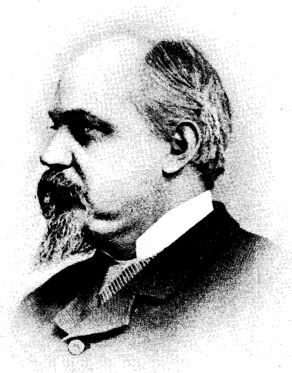
Alpheus Hyatt was an American zoologist and palaeontologist.
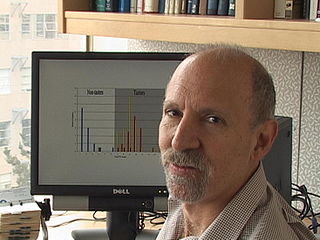
Neil Risch is an American human geneticist and professor at the University of California, San Francisco (UCSF). Risch is the Lamond Family Foundation Distinguished Professor in Human Genetics, Founding Director of the Institute for Human Genetics, and Professor of Epidemiology and Biostatistics at UCSF. He specializes in statistical genetics, genetic epidemiology and population genetics.

Spanish flu research concerns studies regarding the causes and characteristics of the Spanish flu, a variety of influenza that in 1918 was responsible for the worst influenza pandemic in modern history. Many theories about the origins and progress of the Spanish flu persisted in the literature, but it was not until 2005, when various samples of lung tissue were recovered from American World War I soldiers and from an Inupiat woman buried in permafrost in a mass grave in Brevig Mission, Alaska, that significant genetic research was made possible.

GISAID, the Global Initiative on Sharing All Influenza Data, previously the Global Initiative on Sharing Avian Influenza Data, is a global science initiative established in 2008 to provide access to genomic data of influenza viruses. The database was expanded to include the coronavirus responsible for the COVID-19 pandemic, as well as other pathogens. The database has been described as "the world's largest repository of COVID-19 sequences". GISAID facilitates genomic epidemiology and real-time surveillance to monitor the emergence of new COVID-19 viral strains across the planet.

Data sharing is the practice of making data used for scholarly research available to other investigators. Many funding agencies, institutions, and publication venues have policies regarding data sharing because transparency and openness are considered by many to be part of the scientific method.
Yoshihiro Kawaoka is a virologist specializing in the study of the influenza and Ebola viruses. He holds a professorship in virology in the Department of Pathobiological Sciences at the University of Wisconsin-Madison, USA, and at the University of Tokyo, Japan.
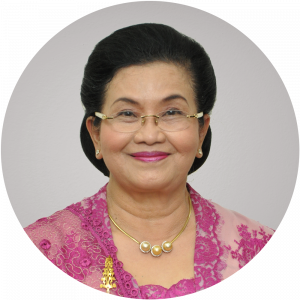
Siti Fadilah Supari, is a cardiology research specialist, a former health minister of Indonesia. She gained global notoriety in 2007 when she took on the World Health Organization's practice of sharing avian influenza virus samples.
Johan Hultin was a Swedish-born American pathologist known for recovering tissues containing traces of the 1918 influenza virus that killed millions worldwide.

The pandemic H1N1/09 virus is a swine origin influenza A virus subtype H1N1 strain that was responsible for the 2009 swine flu pandemic. This strain is often called swine flu by the public media due to the prevailing belief that it originated in pigs. The virus is believed to have originated around September 2008 in central Mexico.
Infoveillance is a type of syndromic surveillance that specifically utilizes information found online. The term, along with the term infodemiology, was coined by Gunther Eysenbach to describe research that uses online information to gather information about human behavior.

Nenad Ban is a biochemist born in Zagreb, Croatia who currently works at the ETH Zurich, Swiss Federal Institute of Technology, as a professor of Structural Molecular Biology. He is a pioneer in studying gene expression mechanisms and the participating protein synthesis machinery.
Alan Cooper is a New Zealand evolutionary biologist and an ancient DNA researcher. He was involved in several important early ancient DNA studies, such as the first sequencing of moa genomes. He was the inaugural director of both the Henry Wellcome Ancient Biomolecules Centre at the University of Oxford from 2001–2005, and the Australian Centre for Ancient DNA at the University of Adelaide, South Australia from 2005–2019.
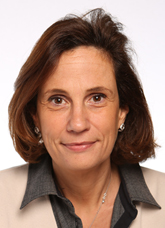
Ilaria Capua is an Italian virologist and former politician, best known for her research on influenza viruses, particularly avian influenza, and her efforts promoting open access to genetic information on emerging viruses as part of pre-pandemic preparedness efforts.

Lithium bis(trifluoromethanesulfonyl)imide, often simply referred to as LiTFSI, is a hydrophilic salt with the chemical formula LiC2F6NO4S2. It is commonly used as Li-ion source in electrolytes for Li-ion batteries as a safer alternative to commonly used lithium hexafluorophosphate. It is made up of one Li cation and a bistriflimide anion.

Wang Jian is a Chinese geneticist and businessman. He is Chairman and co-founder of the BGI Genomics.

Neil Morris Ferguson is a British epidemiologist and professor of mathematical biology, who specialises in the patterns of spread of infectious disease in humans and animals. He is the director of the Jameel Institute, and of the MRC Centre for Global Infectious Disease Analysis, and head of the Department of Infectious Disease Epidemiology in the School of Public Health and Vice-Dean for Academic Development in the Faculty of Medicine, all at Imperial College London.
Cécile Viboud is a Staff Scientist based in the Fogarty International Center at the National Institutes of Health, where she is part of the Multinational Influenza Seasonal Mortality Study (MISMS). Viboud specialises in the mortality of infectious disease. Viboud was involved with epidemiological analysis during the COVID-19 pandemic.
Virological.org is a discussion forum for the pre-publication sharing and discussion of pathogenic virus sequence data. The forum was launched in November 2014 by Andrew Rambaut. Scientists have often used the forum to publicly share the first available outbreak sequences, e.g. during the SARS-CoV-2 pandemic, the 2022–2023 mpox outbreak, and the Ebola virus epidemic in Guinea.
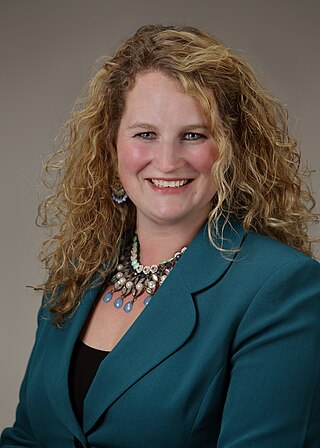
Carrie Wolinetz is the Principal and Chair of Lewis-Burke Associate's Health and Bioscience Innovation Policy Practice Group. She formerly served in the National Institutes of Health as Senior Advisor to the Office of the Director, Associate Director for Science Policy, and Chief of Staff to Francis Collins. She also led the inaugural Health and Sciences division in the White House Office of Science and Technology Policy.














